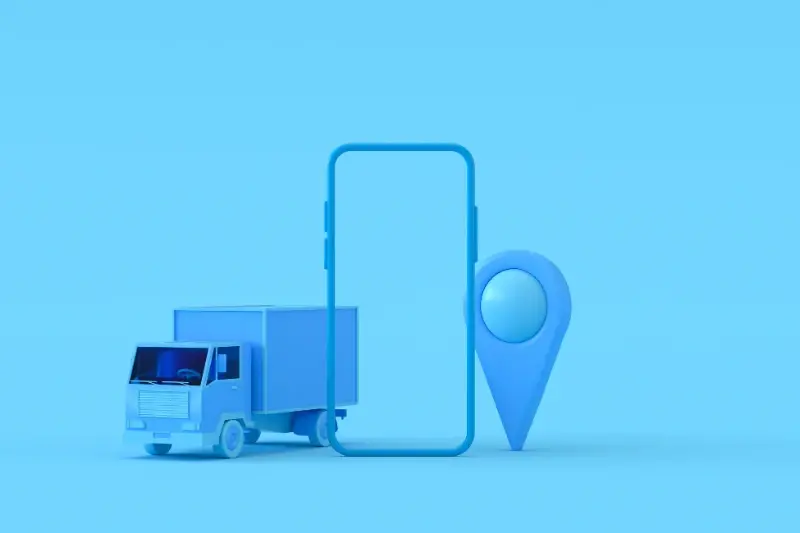How We Help Businesses Choose Between No-Code and Custom Development
Every week, we get calls from business owners who are completely torn between building their mobile app using no-code platforms or going down the custom development route. They've done their research, read countless articles, and somehow feel more confused than when they started. The choice isn't just about technology—it's about understanding what your business actually needs and matching that with the right approach.
What makes this decision tricky is that both options can work brilliantly for the right project. I've seen businesses waste thousands on custom development when a no-code solution would have done the job perfectly. On the flip side, I've watched companies hit walls with no-code platforms when they needed something more flexible.
The biggest mistake businesses make is choosing their development approach before they truly understand what they're building
That's where proper development guidance comes in. After helping hundreds of businesses navigate platform selection, we've learned that the decision shouldn't be based on what sounds more impressive or what your competitor is doing. It should be based on your specific requirements, budget, timeline, and long-term goals. This guide will walk you through exactly how we help our clients make this choice—so you can make the right decision for your mobile app project.
What No-Code And Custom Development Actually Mean
Let me clear up the confusion around these terms because I see people mixing them up all the time. No-code development is exactly what it sounds like—building apps without writing traditional code. Instead, you use visual tools and drag-and-drop interfaces to create your app. Think of platforms like Bubble, Adalo, or Glide where you can build something functional in days rather than months.
Custom development, on the other hand, means writing code from scratch. We're talking about developers sitting down with programming languages like Swift, Java, or React Native to build every feature by hand. It's the traditional way of making apps and gives you complete control over what your app can do.
The Key Differences
The main differences between these approaches come down to flexibility, speed, and cost. No-code gets you up and running quickly but you're limited by what the platform can do. Custom development takes longer but you can build literally anything you can imagine—assuming you have the budget and time.
- No-code platforms have built-in templates and components
- Custom development requires building everything from the ground up
- No-code usually has monthly subscription costs
- Custom development has higher upfront costs but you own the code
Neither approach is inherently better than the other; it depends entirely on what you're trying to achieve and what resources you have available.
Understanding Your App's Complexity Requirements
Right, let's talk about complexity—this is where things get interesting and where most people get it completely wrong. I've seen clients walk into meetings thinking they need a simple app, only to describe something that would make Facebook look basic. The trick is being honest about what you actually need your mobile app to do.
Start with your core features. Write them down. No, really—grab a pen and paper. If your list runs longer than one page, you're probably overthinking it. Simple apps handle one or two main functions well. Think calculator, weather app, or basic note-taking. These are perfect candidates for no-code platforms because they don't require custom integrations or complex logic.
When Things Get Complicated
Complex apps are different beasts entirely. They need custom user authentication, real-time data synchronisation, or integration with multiple third-party services. If your app needs to process payments, handle sensitive data, or work offline, you're moving into custom development territory. The development guidance here is simple: match your platform selection to your actual requirements, not what you think sounds impressive.
List your features in order of importance. If the top three can't be built easily with existing tools, you probably need custom development.
Budget Considerations That Actually Matter
Let me be straight with you—budget conversations are where things get interesting. I've sat through countless meetings where someone declares they want "something like Instagram but better" with a £5,000 budget. The reality check that follows isn't pleasant for anyone involved!
No-code platforms typically cost between £2,000 and £15,000 for a basic to moderately complex app. This includes the platform subscription fees, some customisation work, and basic setup. Custom development? Well, that's where things get spicy. You're looking at anywhere from £15,000 to £100,000+ depending on what you're building.
The Hidden Costs Nobody Talks About
Here's what catches people off guard: ongoing costs. No-code platforms charge monthly fees that can add up—we're talking £50 to £500 per month depending on your user base and features. Custom apps need hosting, maintenance, and updates; these typically run £200 to £2,000 monthly.
The kicker? If you outgrow your no-code solution later, you might need to rebuild everything from scratch. That's not always a bad thing, but it's something to factor in from day one. We always tell clients to think about their three-year costs, not just the upfront investment.
Timeline Expectations And Reality Checks
Let's talk about something that catches almost everyone off guard—how long things actually take. I've had clients come to me expecting their mobile app to be ready in two weeks, and others who think they need eighteen months for something relatively straightforward. The reality? Both groups usually get it wrong.
No-code platforms promise speed, and they do deliver on that promise to some extent. You can have a working prototype in days rather than weeks. But here's what most people don't realise: the setup might be quick, but getting everything polished and tested still takes time. We're talking weeks, not days, for anything beyond a basic app.
Custom Development Takes Longer Than You Think
Custom development is a different beast altogether. Even simple apps typically need 8-12 weeks from start to finish—that's including proper testing and bug fixes. Complex apps with custom features can easily stretch to 6 months or more.
The biggest mistake businesses make is thinking they can rush the testing phase to meet an arbitrary deadline
Here's something I've learned over the years: adding more developers doesn't always speed things up. Sometimes it actually slows things down because of coordination overhead. When choosing between no-code and custom development for your mobile app, factor in realistic timelines for both development guidance and platform selection decisions.
When No-Code Platforms Work Best
After working with hundreds of clients over the years, I've noticed that no-code platforms aren't just a budget-friendly option—they're often the smartest choice for certain types of apps. The key is knowing when they make sense.
No-code works brilliantly for apps that follow standard patterns. Think booking systems, directories, simple e-commerce stores, or basic social platforms. If your app idea sounds like something that already exists (and that's not a bad thing!), then no-code might be perfect.
Perfect No-Code Scenarios
- Testing your app idea quickly without spending thousands
- Building internal tools for your team or company
- Creating apps with standard features like user accounts, payments, and basic messaging
- Launching something simple that you can improve later
- Working with tight budgets or timelines
I always tell clients that no-code is fantastic for getting started. You can build something real, test it with actual users, and see if your idea has legs. If it takes off, you can always rebuild it with custom development later—many successful apps started this way.
The sweet spot for no-code is when your app's main value comes from your content, community, or business model rather than groundbreaking technical features. Sometimes simple really is better.
When Custom Development Is The Right Choice
After eight years of mobile app development, I can tell you that some apps simply cannot be built any other way than custom. When your app needs to do something that no-code platforms weren't designed for, you'll need developers to write code from scratch.
Complex apps with unique features are prime candidates for custom development. If your mobile app needs to integrate with multiple databases, handle real-time data processing, or include advanced security features, no-code platforms will likely fall short. Gaming apps, fintech applications, and enterprise-level software almost always require custom solutions.
Signs You Need Custom Development
Here are the clear indicators that custom development is your best path forward:
- Your app requires unique functionality that doesn't exist in templates
- You need complete control over user experience and design
- Performance and speed are critical to your app's success
- You're planning to scale to millions of users
- Your app handles sensitive data requiring custom security measures
The development guidance we provide clients often points towards custom solutions when they're building something genuinely innovative. Yes, it takes longer and costs more upfront, but you'll own every line of code and can modify anything as your business grows.
Complex applications often require integration with sophisticated APIs, and choosing the right API architecture becomes crucial for performance and scalability—something that's handled automatically in no-code platforms but requires careful consideration in custom development.
If you're unsure whether your app idea needs custom development, describe your core features to a developer—if they start talking about APIs, databases, and complex integrations, you're likely in custom territory.
Conclusion
After eight years of helping businesses make this exact decision, I can tell you that there's no magic formula for choosing between no-code and custom development. What works for one business might be completely wrong for another—and that's perfectly normal.
The businesses that get this decision right are the ones who are brutally honest about what they actually need (not what they think they want) and realistic about their budget and timeline. They understand that a no-code solution that gets them to market quickly can be infinitely more valuable than a custom app that takes two years to build. But they also know when their requirements are complex enough that only custom development will do the job properly.
We've seen companies launch successful apps with simple no-code platforms and others that needed every bell and whistle that custom development could provide. The key is matching your choice to your actual situation, not your aspirations.
Avoiding common pitfalls in app development requires thorough planning and realistic expectations. Many businesses make costly mistakes by not properly assessing their needs before choosing between no-code and custom solutions.
If you're still unsure which route is right for your business, that's completely understandable. These decisions aren't always black and white, and sometimes you need an outside perspective to see the full picture. That's exactly what we're here for.
Share this
Subscribe To Our Blog
You May Also Like
These Related Stories

No-Code vs. Custom Development: The Honest Comparison

The Ultimate Guide to Logistics App Development: Moving Forward in 2025





